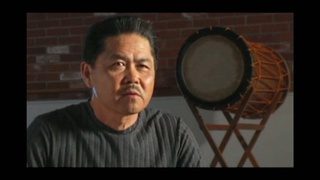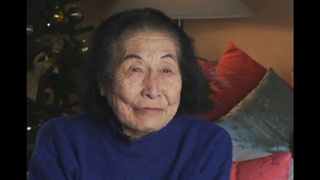Entrevistas
"Song for Anna"
And in 72, I went to Japan to the Yamaha Music Festival which was made up of composers from all over the world, yeah. And Andre Popp who wrote “Love is Blue” was there and he won. And this guy introduced me to him and I went to his room and played the ukulele. I played Debussy, or something classical, Clair de Lune, or something like that, and he was impressed. And he asked me what the range was on a ukulele, and he said you come to Paris in April. Let’s make an album together. Bingo!
He wrote it for me. It says on the sheet music, “Mon Ami, Herb Ohta."
[Play music]
And then that song, “Song for Anna,” when we came back, I brought it through customs and everything. I said I buck-shotted that thing on a cassette tape to all the major labels in the United States. They all turned me down. They said we cannot sell something like this, not in the Rock Era that we have. You know, it’s quiet, classical music, sort of.
So I just released it locally here and it become number one in Hawaii on all the rock stations. Now how they did that was the program director played that early in the morning when people were going to work and somehow it just caught on, and then when A&M heard it, Herb Alpert them, they said they want itso I just released it locally here and it become number one in Hawaii on all the rock stations. Now how they did that was the program director played that early in the morning when people were going to work and somehow it just caught on, and then when A&M heard it, Herb Alpert them, they said they want it.
And it became a hit in San Francisco. It became a hit in Seattle. And, boom, all of a sudden, in volume they were selling 700 records a day. Well, of course, they were all the 45s, yeah, but still then it became number one on KILT, one of the top rock stations out of Houston, Texas.
[Play music]
Fecha: August 2012
Zona: Hawai`i, US
Entrevista: John Esaki
País: Watase Media Arts Center, Japanese American National Museum





